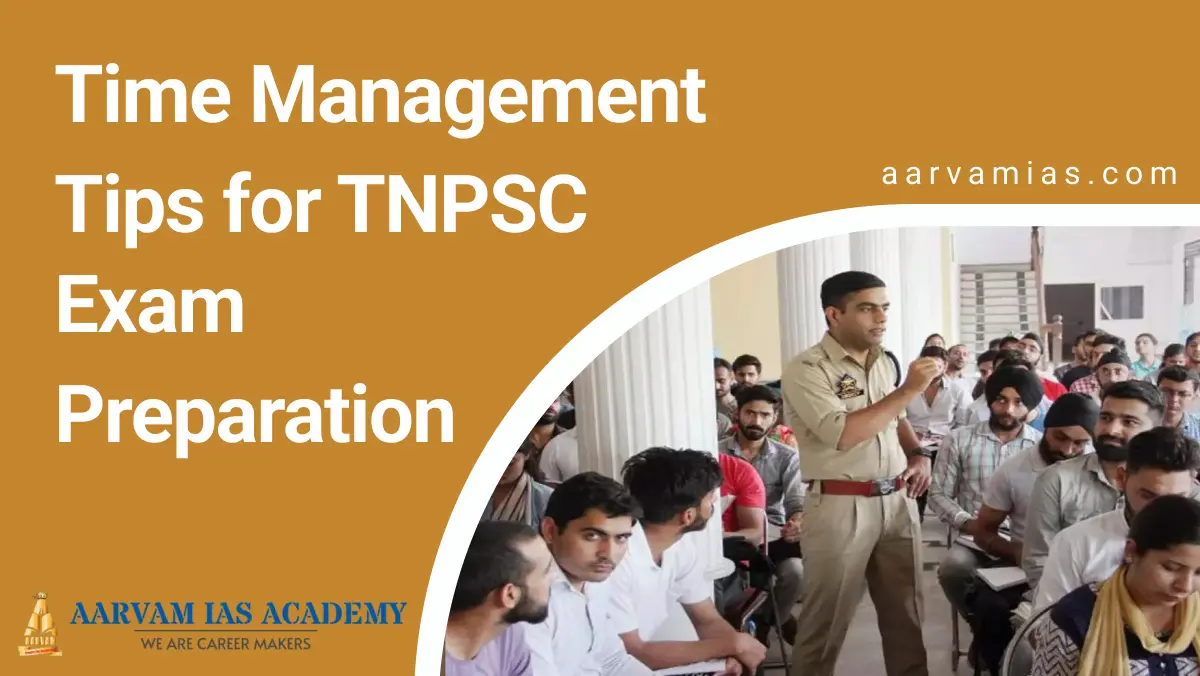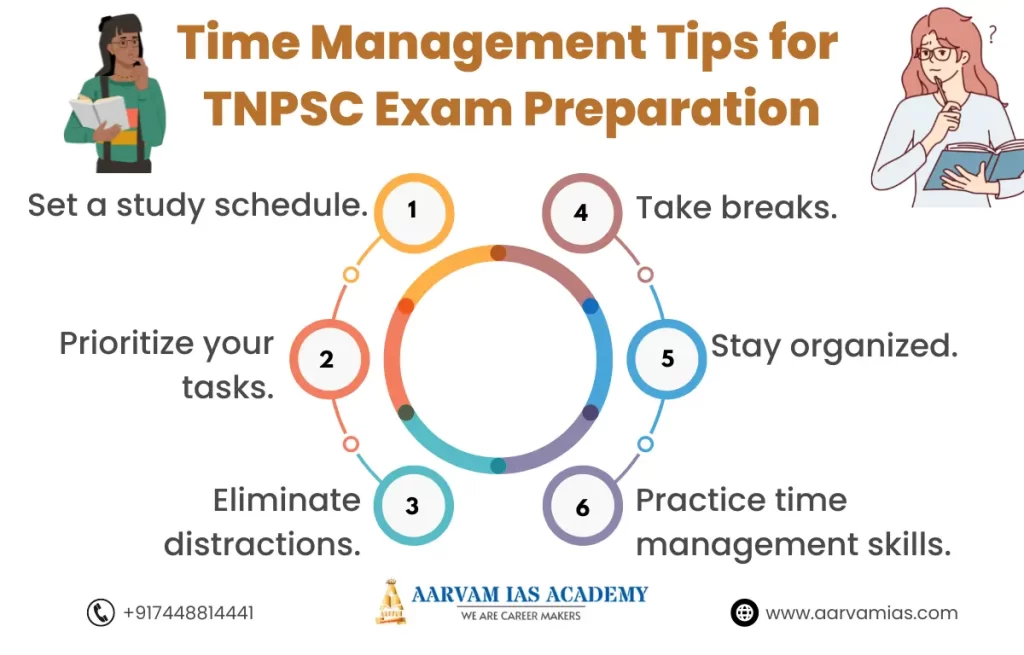
Time management is a crucial aspect of TNPSC exam preparation. With so much information to cover and so little time, it is essential to make the most of every minute. One of the best ways to achieve this is by creating a daily or weekly schedule for studying.
Additionally, by staying accountable, making allowances for breaks, and updating the schedule regularly, you can overcome common challenges and stay on track. Adopting a schedule as part of your TNPSC exam preparation allows you to take control of your time, increase your productivity, and achieve your goals.
This blog will discuss the benefits of creating a schedule and how it can help in better time management for TNPSC exam preparation.
Understanding the Benefits of a Schedule
Creating a daily or weekly schedule for studying has several benefits. Firstly, it can help to improve focus and productivity. When you have a clear plan of what you need to do, it is easier to stay on track and avoid wasting time on unproductive activities.
Secondly, a schedule can help you to better utilize your time. By allocating specific time blocks for each task or subject, you can make the most of the time available for studying.
Thirdly, a schedule can reduce stress and increase motivation. By breaking down big tasks into smaller, manageable chunks, you can minimize stress and stay motivated to keep studying. Finally, for TNPSC exam preparation making a schedule can help you to make more efficient use of resources and study materials.

Steps to Creating a Schedule
Creating a schedule is a straightforward process for TNPSC exam preparation. Firstly, determine the amount of time you have available for studying. This can be done by taking into account any other commitments such as work, school, or family.
Secondly, prioritize tasks based on their importance and deadline. This will help you to emphasize on the most important tasks first.
Thirdly, allocate time blocks for each task or subject. For example, if you have 2 hours available for studying, you could allocate 1 hour for reading, 30 minutes for revision, and 30 minutes for practice questions.
Fourthly, make allowances for breaks, rest, and leisure time. Taking breaks to recharge and refocus is essential, and a schedule can help you ensure that you do so. Finally, be flexible and adjust the schedule as needed.
Tips for Making an Effective Schedule
Here are some tips for making an effective schedule for TNPSC exam preparation:
- Start with achievable goals. Don’t read much in one day. Start with achievable goals and gradually increase the amount of time you allocate for studying.
- Plan for the long-term and the short-term. A schedule should include daily tasks and long-term goals such as completing a particular chapter or finishing a revision cycle.
- Make the schedule visible and accessible. Keep the schedule in a place where you can see it and refer to it regularly.
- Stay accountable to the schedule. Stick to the schedule as much as possible, but don’t be too rigid. If you need to adjust the schedule, do so.
- Regularly review and update the schedule. Regularly reviewing and updating the schedule can help you to stay on track and make any necessary adjustments.
Challenges and Solutions
Staying on track with a schedule can be challenging, especially when dealing with distractions and interruptions. Here are essential tips for combating these challenges:
- Dealing with distractions and interruptions: Create a conducive environment for studying, minimize distractions, and prioritize tasks based on their importance and deadline.
- Balancing study time with other commitments: Prioritize tasks and allocate time blocks efficiently to ensure that you have enough time for both studying and other commitments.
- Overcoming procrastination: Break down big tasks into smaller, manageable chunks, stay motivated, and seek help if needed.
Conclusion
Creating a daily or weekly schedule for studying is a valuable tool for TNPSC exam preparation. By improving focus, maximizing the use of time, reducing stress, and increasing motivation, a schedule can help make the most of the limited time available for studying. By following the steps outlined above, you can create an effective schedule that works for you.










